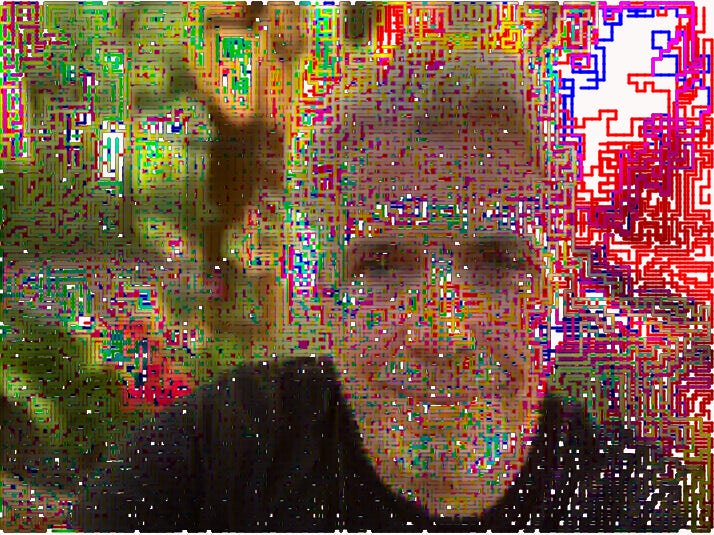How we show we care
(No. 60)Helping others and making plans so they don't have to help you. By Stephen P. Williams
The surprising relationships we carry
Are you willing to prepare for your hospital stay? Photo by Martha Dominguez de Gouveia on Unsplash
I received a disturbing phone call last week just as I sat down to write the latest newsletter. An 85 year old woman in my extended family had suffered a stroke. She and I have known each other since the early 1980s, and have had an interdependent relationship for all these years -- excluding a seven year break after I told her we never needed to speak again. This split was sparked by disputes during my divorce from her daughter, with whom I had three kids. The split ended the day after her daughter died, in her 40s. The next day she started calling me her son-in-law again, even though I bristled at the moniker, still sensitive after a brutal divorce from her daughter.
We’ve gotten along well ever since, and I’m someone she turns to at difficult moments. So I put last week’s newsletter aside and drove three hours to the hospital, in western Massachusetts. There I found her in a diminished state, but ready to get to work to regain whatever mobility she had lost. I was up there a few days, and on each visit to the hospital I found a woman on the mend.
She’s an optimist, and a hard worker, and I’m sure she’ll make a lot of progress in the coming weeks. Meanwhile, all the facts of life and all the caretaking that rise up in this situation immediately became apparent. I needed to be sure her cats, dog, garden and house were cared for. She and I talked about how to pay her bills. And then the choices ahead for her, including where to get physical therapy and what kind of help she might need when she goes home.
While most of us find it easy to put off making decisions about our future selves, out of a desire not to dwell on aging and illness, my experiences this week remind me that procrastination and aging aren’t a good mix. Fortunately, my ex-mother-in-law had over the years made decisions that made my job easier (plus, she has several loyal friends who are looking out for her every step of the way). These plans, such as pet care, a living will and other measures that vary from person to person, make the sick person’s life easier, but also help those who are charged with caring for them.
Planning our illness and eventual demise can be an interesting, life affirming process. I’m sure not everyone wants to do this, but I find it comforting to know that I have a clear will, a health proxy statement, and a file that lists some of the essentials my kids will need to know after I die: my credit cards, my property, the people I’d like to invite to my funeral (if my kids stage one), and the people I’d prefer not to be there (yes, there are a few, though I’m not sure why any of them would come — I’m also not sure why I hang on to a grudge), and even a playlist of songs I would approve (Joni Mitchell, Sugar Hill Gang, Rosalia, Al Green and Salt Cathedral, among others). I am in the process of buying either an urn site or gravesite in a cemetery in Brooklyn. Basically, I don’t want my kids to have to deal with all this stuff.
A Mexican funeral procession. The coffin looks like an eclair. Photo by Paul Quispe on Unsplash
Before you say I’m being morbid, I will say that the definition of morbid includes an “unhealthy obsession” with death. I think my interest is very healthy, and far from obsessive. I figure that since I’ve taken care of myself for so many decades, I might as well see it through to the end!
By the way, my ex-mother-in-law is powering through her physical therapy, and all signs are that she’ll be up and about soon.
A beautiful place to be dead
I don’t believe that after I die I will care where my body or ashes reside. But I do believe decisions about this aspect of dying are difficult for family members and others who have to make them, so I might just buy my own plot or urn here at Green-Wood. On the plus side, it will give me a reason to design my own headstone, which might read “He could write about it, but he couldn’t beat it.” Death and aging, that is.
Other news
Ask the experts
These pros know what it takes to live for a bit.
A new way to fund research into aging
VitaDAO is a complex technological system with the very practical goal of funding aging research and tracking the resulting intellectual property. The acronym DAO stands for distributed autonomous organization. DAOs are digital, and are governed by everyone who participates by either investing cryptocurrency into the DAOs investment fund, or earning their participation with sweat equity. Then all the participants consider different proposals for ways to invest that money. To put it simply, DAOs have no CEO, and decisions are made more or less democratically. VitaDAO focuses on funding early stage longevity research, especially in areas that might not be commercially large enough to find funding from big pharmaceutical companies. Their first project is with the Scheybie-Knudsen lab, which is looking into how cells age.
Pink noise
Scientists sometimes assign colors to noises. The color depends on the frequency and energy of the sound. Pink noise emphasizes a mix of lower frequencies that make deep sounds. In nature, we find pink noise in rustling leaves, rainfall, wind and our own heartbeats. Apparently, pink noise helps people sleep well better than white noise. And remember, good sleep means good health.




